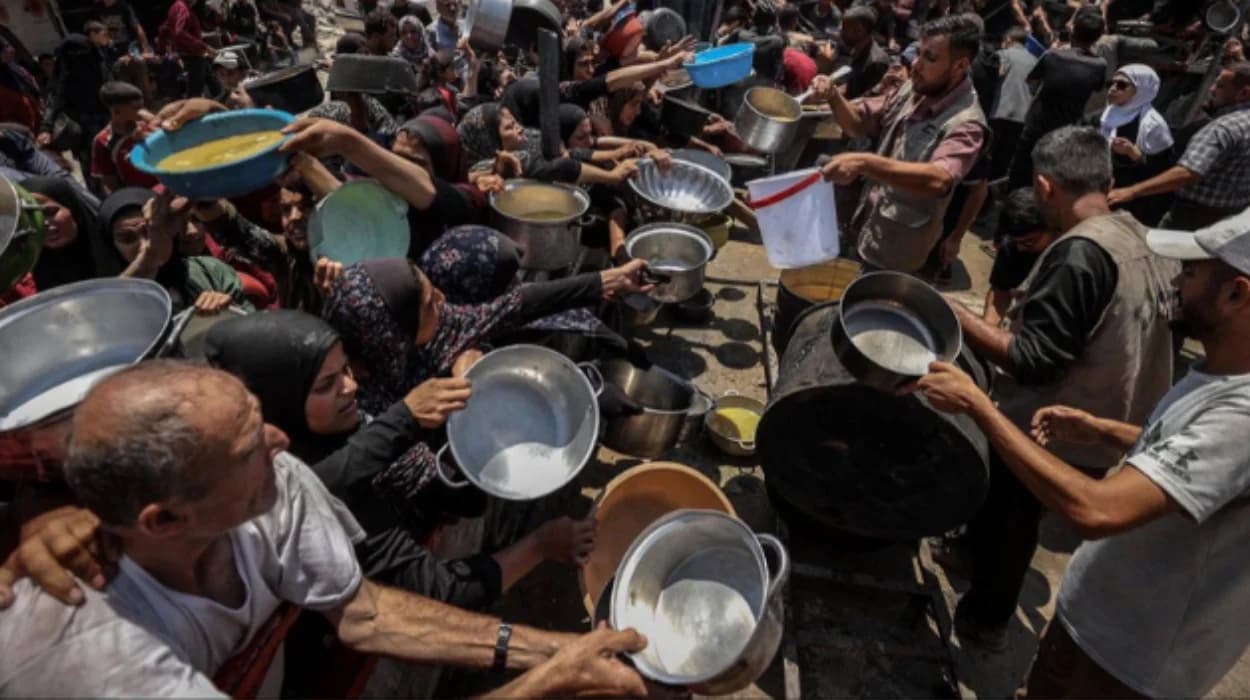Allegations of an assassination plot against Israeli Prime
Minister Benjamin Netanyahu have surfaced amidst a worsening humanitarian
crisis in Gaza that has claimed dozens of lives due to famine. Concurrently,
the conflict in Yemen persists, adding to regional instability as Day 655 of
these interlinked crises unfolds.
What is the latest on the Netanyahu assassination plot?
According to Sky News security correspondent Mark Stone,
Israeli intelligence agencies have uncovered a credible assassination plot
targeting Prime Minister Benjamin Netanyahu. As reported on 24 July 2025,
officials remain tight-lipped on operational details but confirmed that
heightened security measures have been instituted around Netanyahu and other
key political figures amid escalating tensions in Israel.
Israeli defence officials, speaking off the record to The Jerusalem
Post, described the plot as “sophisticated and imminent,” reflecting the
extreme volatility of the current political climate.
How is the Gaza famine escalating?
Gaza is experiencing a severe famine crisis, with dozens
reported dead due to starvation and deadly shortages of food, clean water, and
medical resources. The blockades imposed by Israeli and Egyptian authorities
continue to restrict essential humanitarian aid into the Strip.
As detailed by the BBC's Middle East correspondent Jeremy
Bowen, infrastructure damage caused by continuous airstrikes and ground
operations has crippled hospitals and water supplies, compounding the
humanitarian emergency.
The United Nations’ humanitarian coordinator in Gaza, Lynn Hastings, urged immediate international intervention, stating,
“The situation is catastrophic; hundreds of thousands are at risk of famine if aid is not allowed to flow freely.”
How many lives have been lost in the Gaza famine so far?
The Guardian’s Middle East bureau estimates that over 70 individuals,
many of them children and elderly, have succumbed to famine-related illnesses
over the past two weeks alone. Reliable confirmation of death tolls is
complicated due to restricted access and communication blackouts within Gaza.
Aid groups such as Médecins Sans Frontières (Doctors Without
Borders) warn that the death toll could rise sharply without urgent
humanitarian corridors.
What role does Yemen play in this regional crisis?
The longstanding conflict in Yemen remains a critical,
though often less publicised, front in regional instability. Al Jazeera’s Yemen
correspondent, Mohammed al-Saadi, explains that the conflict has entered its
tenth year, prolonging a vast humanitarian disaster with over 17 million people
in need of assistance.
“The Yemen war is a parallel crisis contributing to the broader Middle Eastern turmoil,”
al-Saadi said.
“While Gaza receives global attention, Yemen’s famine and displacement are equally urgent and interconnected with shifting alliances and proxy battles involving regional powers.”
Notably, some investigative journalists from Reuters claim
Iran-backed Houthi rebels in Yemen have expressed support for Palestinian
factions opposing Israel, adding complexity to the security environment in the
Gulf and Red Sea regions.
Why is the famine in Gaza and Yemen occurring simultaneously?
Multiple humanitarian experts attribute the concurrent
famines to:
- Protracted
conflicts: Both Gaza and Yemen are embattled regions where
ongoing hostilities disrupt food production and supply systems.
- Blockades
and embargoes: Restrictions on the movement of goods imposed by
neighbouring states drastically limit humanitarian aid.
- Destruction
of infrastructure: Repeated bombing campaigns have devastated
vital infrastructure including hospitals, water treatment plants, and
roads.
The International Committee of the Red Cross (ICRC) has
emphasized how these man-made crises demonstrate a “dangerous erosion of basic
human rights.”
How are international actors responding to these intertwined crises?
Global powers and international organisations have
intensified calls for ceasefires and increased humanitarian access in both Gaza
and Yemen.
UN Secretary-General António Guterres, in a recent statement reported by The Associated Press, urged parties in both conflicts to cease hostilities and prioritise civilian protection:
“We cannot remain silent in the face of such suffering.”
The US State Department spokesman, as covered by CNN,
reiterated Washington’s support for humanitarian missions but underscored the
complexity of brokering peace amid deep-seated political and sectarian
divisions.
Meanwhile, humanitarian agencies are scaling up aid efforts
despite logistical obstacles. Médecins Sans Frontières detailed ongoing efforts
to supply medicines and nutrition to famine-stricken populations in Yemen and
Gaza, yet warned of the “urgent need for unimpeded access.”
What are the broader implications for regional stability?
Experts quoted by The Economist warn that the Israel-Gaza
conflict combined with Yemen’s civil war threatens to destabilise the entire
Middle East:
- Risk
of escalation into wider proxy conflicts involving Iran, Saudi Arabia, and
the US.
- Increased
sectarian violence and humanitarian disasters could trigger mass
displacement.
- Threats
to critical shipping lanes near Yemen’s Red Sea coast could disrupt global
trade.
Dr. Elizabeth Kendall, a Middle East specialist at Oxford
University, cautioned, “Without coordinated international diplomacy, the risk
of a larger conflagration is real.”
Why is neutral and comprehensive journalism vital in covering these complex crises?
Experienced journalists such as Ben Westcott of CNN
emphasise the need for fact-based and impartial coverage, especially given the
polarised narratives disseminated by participants on all sides.
As the UK-based Centre for Journalism Education suggests,
accurate reporting is essential to enable informed public discourse and policy
response while respecting the dignity of affected populations.
The importance of impartiality is further underscored by
historical incidents like the UK Post Office Horizon scandal, where
investigative journalism was crucial in uncovering systemic injustice,
reminding current reporters of the responsibility borne in crisis contexts.
How can the international community help resolve these crises?
Key steps include:
- Facilitating
humanitarian corridors into Gaza and Yemen.
- Supporting
diplomatic efforts aimed at sustainable ceasefire agreements.
- Enforcing
international law and protecting civilian populations.
- Promoting
media literacy to counter misinformation and encourage understanding.
What is the outlook as Day 655 approaches?
As of 24 July 2025, the situation remains precarious, with
the assassination plot against Netanyahu indicating escalating security threats
in Israel. Simultaneously, the worsening famines in Gaza and Yemen represent
unfolding human catastrophes demanding urgent global engagement.
Further updates will be provided as new information
develops, with ongoing monitoring by international correspondents and
humanitarian agencies.
